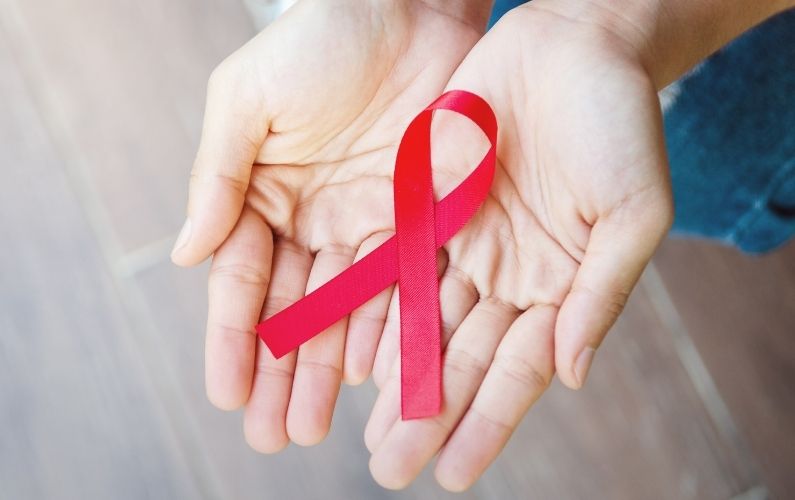HIV Prevention Tips to Reduce Your HIV/AIDS Risk

Learn more about HIV prevention tips and what you can do to lower your chances of contracting HIV/AIDS. Plus, find out what treatment options are available.
HIV, or human immunodeficiency virus, is a viral infection that wreaks havoc on the immune system, making it challenging to combat and recover from diseases. If left untreated, HIV can result in AIDS (acquired immunodeficiency syndrome), a chronic and potentially fatal disease.
As there is no specific cure for the infection, it is best to take timely precautions to avoid further complications. This post will review HIV prevention tips, causes, symptoms, and treatment options. Keep reading to learn more.
HIV Prevention Tips to Reduce Your HIV/AIDS Risk
What Causes HIV
The primary causes of HIV are infected blood, vaginal fluids, or semen. Below is more information about how the virus can spread from one person to another.
Unprotected Sex
If you have sexual contact (vaginal, oral, or anal) with an HIV-positive person, you may become infected.
Sharing Needles
When you share infected IV drug needles or syringes, it increases your chances of not only contracting HIV but also other diseases such as hepatitis B.
Blood Transfusions
Blood transfusions can spread HIV in some instances. However, the chances of this occurring are rare.
Mother to Child
HIV-positive mothers can spread the virus to their children during pregnancy, delivery, or breastfeeding.
Common Misconceptions About HIV Transmission
Contrary to widespread belief, HIV cannot be spread by regular contact such as hugging or kissing. In addition, sharing toilets, insect bites, or drinking water from the same glass cannot result in HIV infection.
How HIV Turns Into AIDS
If you contract HIV, it does not necessarily mean that you will develop AIDS. With early detection and treatment, you can manage the infection and live a long and healthy life.
In some cases, the infection can go unnoticed for years with little or no symptoms. If you receive no treatment for HIV, it can progress and turn into AIDS.
White blood cells are damaged when this happens, and the immune system weakens significantly. As a result, your body will be more susceptible to infections that don’t generally cause ailments in people who have a strong immune system.
HIV Symptoms
It is important to become aware of the symptoms of HIV so that you can receive treatment as soon as possible. Your symptoms may vary based on the virus load in your bloodstream.
In some cases, individuals may not experience any symptoms for up to 10 years after infection. On the other hand, others may experience early symptoms that are usually mild and similar to the flu. For example, you might experience:
- Fever
- Sore throat
- Muscle aches
- Joint pain and stiffness
- Fatigue
- Swollen lymph nodes
- Chills
HIV Prevention Tips
Since no cure is available for HIV infection and no permanent treatment has been developed for AIDS yet, it is critical to follow the HIV prevention tips below.
1. Use Protection When Having Sex
One of the most common ways to catch HIV is through unprotected sex. While having sex, make sure that you use new condoms. Furthermore, if you intend to use a lubricant, ensure that it is water-based as oil-based ones make the condoms weak and may break them.

2. Talk About HIV With New Sexual Partners
It is critical to discuss HIV status and risk with new sexual partners. If either of you is unsure, the safest option is to get tested and use condoms when having sex.
3. Use Clean Needles
If you inject drugs with a needle, make sure it is clean and avoid sharing them with others.
4. Take PrEP
PrEP (pre-exposure prophylaxis) is an HIV prevention drug used by those at risk of contracting HIV. However, it must only be taken when doctors prescribe so.
5. Avoid Sharing Personal Items
Since personal items such as toothbrushes or razors may contain traces of infected blood, it is best to avoid sharing these with others.
6. Protect Your Partner if You are HIV-Positive
If you are HIV-positive, taking appropriate medications can prevent transmission of the virus to your partner. Additionally, you won’t spread the infection to another person if you keep the viral load undetectable. Likewise, the best way to protect your partner is by taking prescription medications that can help reduce the viral load and prevent transmission.
HIV Treatment
Although there is no cure for HIV/AIDS, medications can slow the progression of the disease and help you live a healthy and fulfilling life.
Here are some treatment options for people living with HIV.
Take Antiretroviral Medications
Contact your doctor if you fear you have contracted HIV to get antiretroviral medications. This treatment option is highly effective and can reduce your viral load while strengthening your immune system.

If Pregnant, Seek Immediate Medical Attention
HIV can be transmitted from mother to child. So, if infected, you may pass it to your child during pregnancy, delivery, or at the time of breastfeeding. That said, we recommend seeking medical care immediately as early treatment can significantly lower the risk of transmission.
Final Thoughts
If you engage in behaviour that increases your HIV/AIDS risk, it is more important than ever to follow the HIV prevention tips in this post. Likewise, practicing safer sex and avoiding sharing personal items can significantly reduce your chances of infection.
Finally, if you are living with HIV, know that there are effective treatment options that can help. Contact our pharmacists here to learn more about HIV/AIDS and the prescription medication treatments available.
References:
https://www.healthlinkbc.ca/illnesses-conditions/hiv/hiv-infection#hw-cause
https://www.canada.ca/en/public-health/services/diseases/hiv-aids.html


